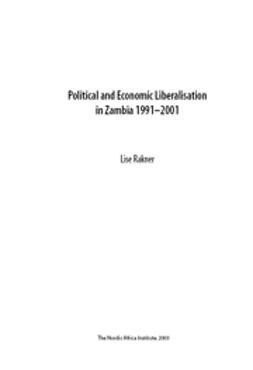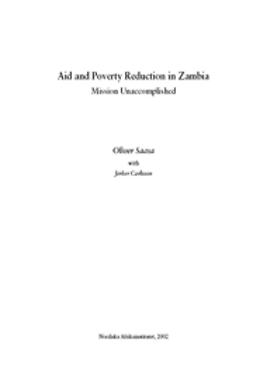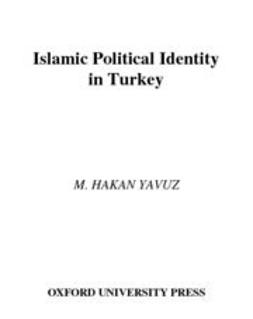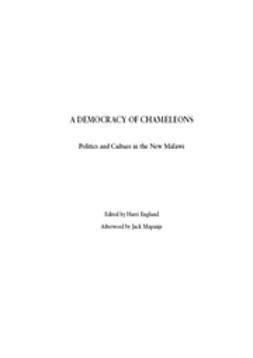Rakner, Lise
Political and Economic Liberalisation in Zambia
As one of the first countries in sub-Saharan Africa, in 1991 Zambia experienced a peaceful transition to multi-party rule. The new government, Movement for Multiparty Democracy (MMD), also committed itself to implementing an economic reform programme. The international donor community in turn generously rewarded the new government’s commitment to both political and economic change.
Despite the optimistic forecasts in 1991, both the political and economic liberalisation processes in Zambia are today characterised by their partial implementation. Zambia has joined the vast majority of African reforming governments and entered into a 'transitional grey zone' in terms of democratic reforms, and remains stuck in a 'partial reform syndrome' characterised by a permanent economic crisis.
What can explain the Zambian development trajectory? Why were some elements of the economic reforms implemented soon after the 1991 elections while other vital reform processes were postponed? To what extent did the processes of political and economic reform reinforce or hinder one another? This book analyses the implementation of political and economic liberalisation in Zambia during the first two election periods (1991-2001). Focussing on the negotiations between government and the key domestic interest groups, as well as the dialogues between the MMD government and the international donor community, the book argues that despite a disastrous socio-economic record, the processes of political and economic liberalisation proceeded concomitantly without seriously affecting or undermining each other. Contrary to expectations linked both to the political and economic reform processes, executive dominance increased in Zambia in the 1990s. Stressing continuity rather than change, the analysis of Zambia's reform processes suggests that the practices of patronage politics associated with authoritarian regimes are compatible with processes of political and economic liberalisation.
Lise Rakner is senior researcher at the Chr. Michelsen Institute Bergen, Norway. She holds a PhD in political science. In recent years, she has conducted field research in Zambia, Tanzania, Uganda and Namibia.Thematically her work has focussed on the issues of democratisation and human rights, economic reform, taxation, institutional change and international aid.
Keywords: Economic development, Economic reform, Donors, Political development, Zambia
- Author(s)
- Rakner, Lise
- Publisher
- The Nordic Africa Institute
- Publication year
- 2003
- Language
- en
- Edition
- 1
- Page amount
- 235 pages
- Category
- Society
- Format
- Ebook
- eISBN (PDF)
- 91-7106-506-7






